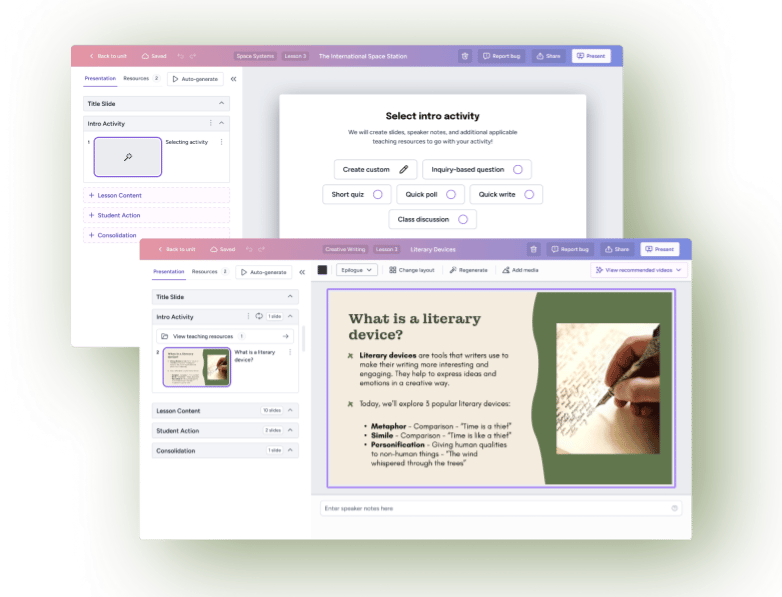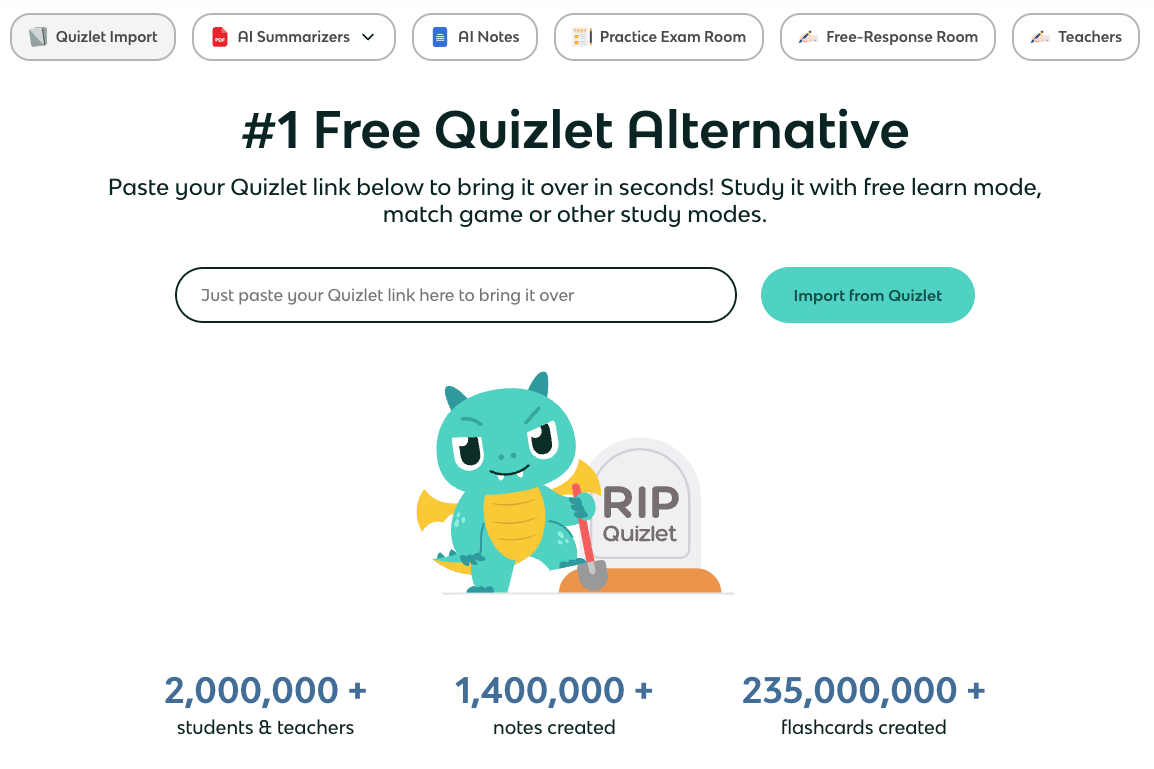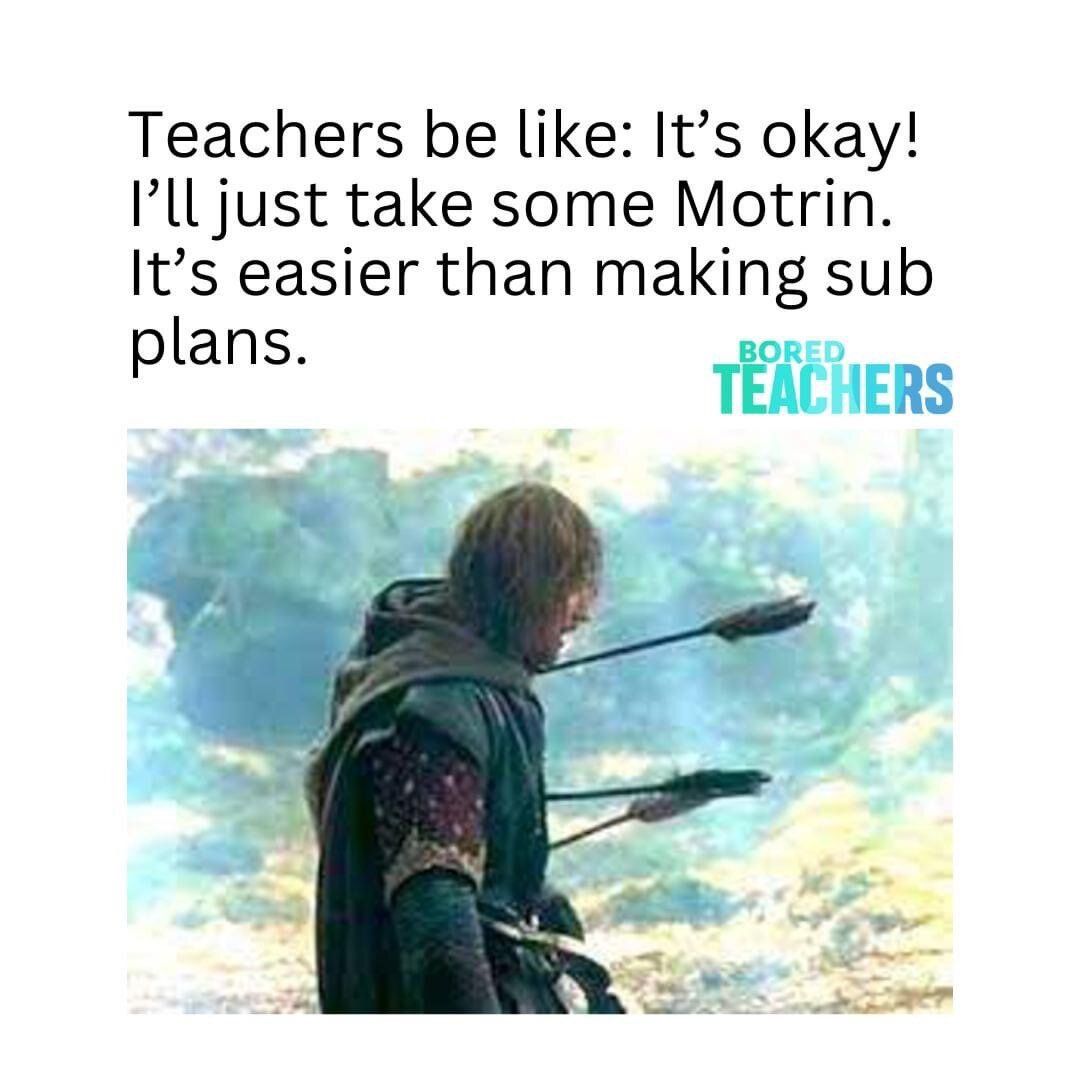🧑🏫 What would you tell aspiring teachers?
I have details from the Dr. Phil Show I appeared on — with quotes and links and images. (Probably last time I’ll post about it for now!)
But before that …
I’d like your help.
Actually, high school students who think they’d like to be teachers — they need your help.
I get to address a room full of high school cadet teachers in a week and a half. I’m doing a brand new presentation for them.
Title: “Dear Younger Me: 10 Things I Wish I Knew About Teaching”
I’ll tell them my winding, twisting path to becoming a teacher. Then, in list format, I’ll tell them the 10 things I wish I knew.
I’d also love to pass along YOUR advice and encouragement, too.
In a future email newsletter, I’ll likely share some of my favorites — and I might even record video of the presentation and share it here, too. Stay tuned!
Inside:
🚌 Back to School Prep? TeachAid’s AI is the Solution
👀 DTT Digest: Google tutorials, Wakelet, AI, book tasting
💡 The Big Idea: Matt’s Dr. Phil episode: 8 things to consider
💻 Tech Tip: Knowt: A free Quizlet alternative
😄 Smile of the day: Better than sub plans
👋 How we can help
🚌 Back to School Prep? TeachAid’s AI is the Solution

This message is sponsored by TeachAid
As the new school year begins, we know you're busy planning to meet your students' diverse needs. TeachAid is here to help.
Meet TeachAid: The Complete Curriculum & Pedagogy AI Solution
TeachAid streamlines unit creation, allowing you to:
Develop Unit Plans: Effortlessly create detailed unit plans aligned with your standards.
Generate Assessments and Rubrics: Craft thorough assessments to evaluate student learning effectively.
Create Lesson Plans: Produce interconnected plans that scaffold learning and meet diverse needs.
Design Activities and Presentations: Generate dynamic activities and presentations.
Support Tiered Instruction and Differentiation: Provide tailored instructional materials for all students.
TeachAid’s mission is to create equitable curricula, enhance teacher efficiency, and support tiered and IEP instruction.
Transform Your Teaching with TeachAid Today
Effortless Planning: Create scaffolded lesson plans aligned to your standards. Start Creating Now
Comprehensive Assessments: Craft assessments easily. Sign Up for Free
Interactive Presentations: Generate engaging presentations. Discover More
Equitable Activities: Design activities that promote active learning. Learn More
Get Started for Free and experience the future of education with TeachAid.
👀 DTT Digest
4 teaching resources worth checking out today
📚 Student/parent Google tutorials — A spreadsheet full of tutorials for various Google tools. h/t TCEA and Maggie Espinola for sharing!
🖥 Wakelet browser extension — This is THE way I keep links and online resources organized. Their new sidebar-style extension is amazing!
🦬 6 steps for thriving as an educator in the age of AI — Jake Miller says you need to be more like … umm … a buffalo?
👩🍳 A student “book tasting” — Edutopia suggests this as a way to help reluctant readers to open up to new genres. (Video on Twitter/X)
💡 THE BIG IDEA 💡
📺 Matt’s Dr. Phil episode: 8 things to consider

Image via Merit Street Media
When I got an email from a producer of the Dr. Phil Primetime show this spring, I thought it was a joke.
But no joke: They wanted to do a show on AI in education, and they wanted me as a guest.
I jumped at the chance. Not because I thought that Dr. Phil was my top choice as a conduit of info related to AI in education. But because it’s a big platform — and I could use it to help to direct the narrative with AI in education.
The episode aired on Friday. You can see it on demand on Merit Plus for free here.
💡 Here are eight takeaways — and some direct quotes from guests on the show (including me!).
(FYI: This segment is longer than our normal Big Ideas! If you want to share it, use this link — http://ditch.beehiiv.com/8-22-2024 — and encourage them to subscribe to the newsletter!

Image via The Alpha School
1) We learned about the Alpha School (http://alpha.school) model. In the show, co-founder Mackenzie Price shared the basics of the school.
Students spend two hours a day with a personalized AI tutor. It’s Common Core-focused work on math, science, social studies, and math.
The remaining four hours? These are called their “life skills workshops.” They do science labs. The learn instruments. They spend time outdoors. During these hours, they focus on experiential learning.
The results? Alpha School claims that their students achieve 2.6x more growth than their peers. The top 20% of Alpha students show 6.5x growth over peers. And the majority score in the 99th percentile nationally.
Questions: Would this model scale to public schools? Is there anything that other K-12 schools could learn from this model?
2) There are concerns about the Alpha School model — some stated in the show and others left unstated.
Alpha School employs zero licensed human teachers. The adults are called “guides.” They' provide guidance, motivation and support.
Alpha School is a private school. Tuition ranges from $10,000 to $35,000 per year based on household adjusted gross income.
With no trained, licensed human teachers, there appears to be little to no pedagogically-informed support for students who struggle. After the show, I asked Price how they support students who struggle to learn with the AI tutor, she didn’t have an answer.
There also appears to be a big push to open new Alpha School campuses. It has Texas locations in Austin and Brownsville. A Miami location is enrolling for fall 2024, and a Denver campus is coming soon. Interested individuals can fill out a form on their home page to support bringing a campus to their city.
Questions: What parts of teaching and learning are still best suited to a human teacher? If AI models struggle with accuracy and bias right now, how do they ensure students are getting appropriate instruction? Who developed the Alpha School AI platform, and what values does it espouse?

Image via Merit Street Media
3) Alpha School’s co-founder might be overhyping the promise.
Dr. Phil asked, “Why is this a good idea?”
Price: “I believe this is the future of education, and the reason that it is so important to deliver this is because with technology, we can give every single student exactly the level of instruction that they need at the exact pace that they need so we can therefore deliver incredible outcomes.”
“I believe the traditional school system is a broken system, and it’s an impossible job for a teacher to be able to teach to 20+ students in a classroom who are at wildly different degrees of understanding of the material.”
Note: Price doesn’t seem to have any formal educational background in education or any teaching experience.
Questions: How can one measure her vision — “every single student exactly the level of instruction that they need at the exact pace that they need”? Is this realistic with today’s AI models? What gaps are left when AI tutoring for 2 hours and participating in life skills workshops for 4 hours?
4) Academic integrity in an AI age is a challenge.
On the episode, college student Marley Stevens shared her horror story about the inaccuracy of AI detectors.
Marley wrote a paper for one of her college classes.
Her professor claimed it was 80 percent written by AI.
Marley wanted to meet with the professor to show her edit history, her notes, and to demonstrate her understanding of the material.
She ran her paper through the same AI detector program and it was shown
Her professor stopped returning her calls.
She was referred to the student integrity committee.
She was put on academic probation for a year, lost scholarships, and was made to pay $105 for an integrity seminar about cheating.
AI content detectors have been demonstrated to produce inconsistent findings, to overclassify text as human-produced, and to exhibit bias against non-native English speakers.
Questions: What do we really hope to learn from the results of AI detectors? How can we adjust our assignments — and how we assess — based on the inaccuracy of these tools?

Image via Merit Street Media
5) Plagiarism detectors are not the same as AI detectors.
Here’s what I said about Marley’s situation above: “This is really one of the biggest issues in schools right now, that teachers are trying to figure out. We’ve gotten into this culture where we assume, oh, well, we’ll take a student’s paper and plug it into TurnItIn and we’ll see if it’s plagiarized. We are comparing that against human-created work before and it was different. Now, we have AI-created work and it just doesn’t work the same.”
Plagiarism detectors like classic TurnItIn compare student work against other human-created work. They claim plagiarism when there’s a correlation with other work created by humans (a key element of plagiarism: human creation).
AI detectors study patterns in writing and make their best guess about whether those patterns are close enough to claim that work was written by AI.
6) A model to emulate: the best parts of being a human — but augmented with technology.
If we want students to be prepared for an AI future, we can help them to see the appropriate balance of human and technology. This is a balance we’ll work to strike for the rest of our lives.
Here’s what I said: “Right now, the most success is really when there’s an AI/human collaboration, where we’re still using the best parts of ourselves as humans, but then we’re also augmenting with artificial intelligence. We’re adding new tools to our toolbox, so to speak, with AI. And when you start to do that, I think, at least for the near term and maybe even further than that, when students are equipped to do that, I really think that’s what’s going to prepare them for college and beyond.”

Image via Merit Street Media
7) We have to be careful and work to protect students.
Producers created a video montage of news footage talking about:
students creating fake nude photos of fellow students and circulating them online
an athletic director circulating AI-generated audio of the principal’s voice to use as retaliation
the potential destruction of the human race
Bias is an issue, too. Here’s what I said: “We have to remember that AI bias is human bias. It is pulled in by all of this data, all of this information that was created by humans. Even if the developers try to adjust it and try to compensate for it, it’s still there.”
Inaccuracy is also an issue. Here’s what Austin, Texas, librarian Jean Darnell said: “Even AI will tell you not to use everything I say truth to power because I am with mistakes. I can only be as good as the input data that is given. Trash in, trash out.”
8) We can make steps in the right direction.
One positive step: Giving teachers the training they need to put them (and students) in position to succeed. Here’s what I said: “One of the biggest solutions to all of that is training, and that’s something a lot of teachers and a lot of schools just don’t have access to right now.”
We can help prepare students for the future they’ll live in. Librarian Jean Darnell said: “We have to teach for the future. For kids that are in middle school right now, 10 to 12 years, they’re going to be out in workforce. They need to know understand how to work alongside AI because it’s not going anywhere. It’s going to transform our whole communication, our whole education, the whole vibe of how we interact in the world.”
I got to conclude the episode before Dr. Phil’s closing thoughts. Here’s how I wrapped it up:
“That’s why I’m such a big proponent of students understanding what they’re getting into, learning how to interact with it, learning how to vet some of that stuff. […] That’s why I think we still have to have this great collaboration I was talking about earlier, this balanced level of human interaction and AI interaction.”
“Let’s be honest. Teaching is a human profession. We’re still trying to develop humans to be the best people that we possibly can. There’s empathy involved. There’s relationships involved. If we get our balance a little bit out of whack, we start to miss out on what makes education great.”
📺 Want to watch the whole episode? Access it for free on the Merit Plus site/app.
💻 TECH TIP 💻
💭 Knowt: A free Quizlet alternative

Screenshot via Knowt / Not sponsored content
Last spring, when I was teaching Spanish, I saw firsthand the struggle students faced trying to use Quizlet for free.
Most of the best options were locked behind the paywall.
If you’re looking for an alternative, you might check out Knowt (knowt.com).
You can bring your Quizlet flashcard sets over with a simple share link.
Plus, there are lots of AI features and practice study modes. All for free. (At least for now!)
Check it out at knowt.com.
😄 Smile of the day
Suffering thru school > suffering thru sub plans

h/t Bored Teachers via Twitter/X
👋 How we can help
There are even more ways I can support you in the important work you do in education:
Read one of my six books about meaningful teaching with tech.
Take one of our online courses about practical and popular topics in education.
Bring me to your school, district or event to speak. I love working with educators!

